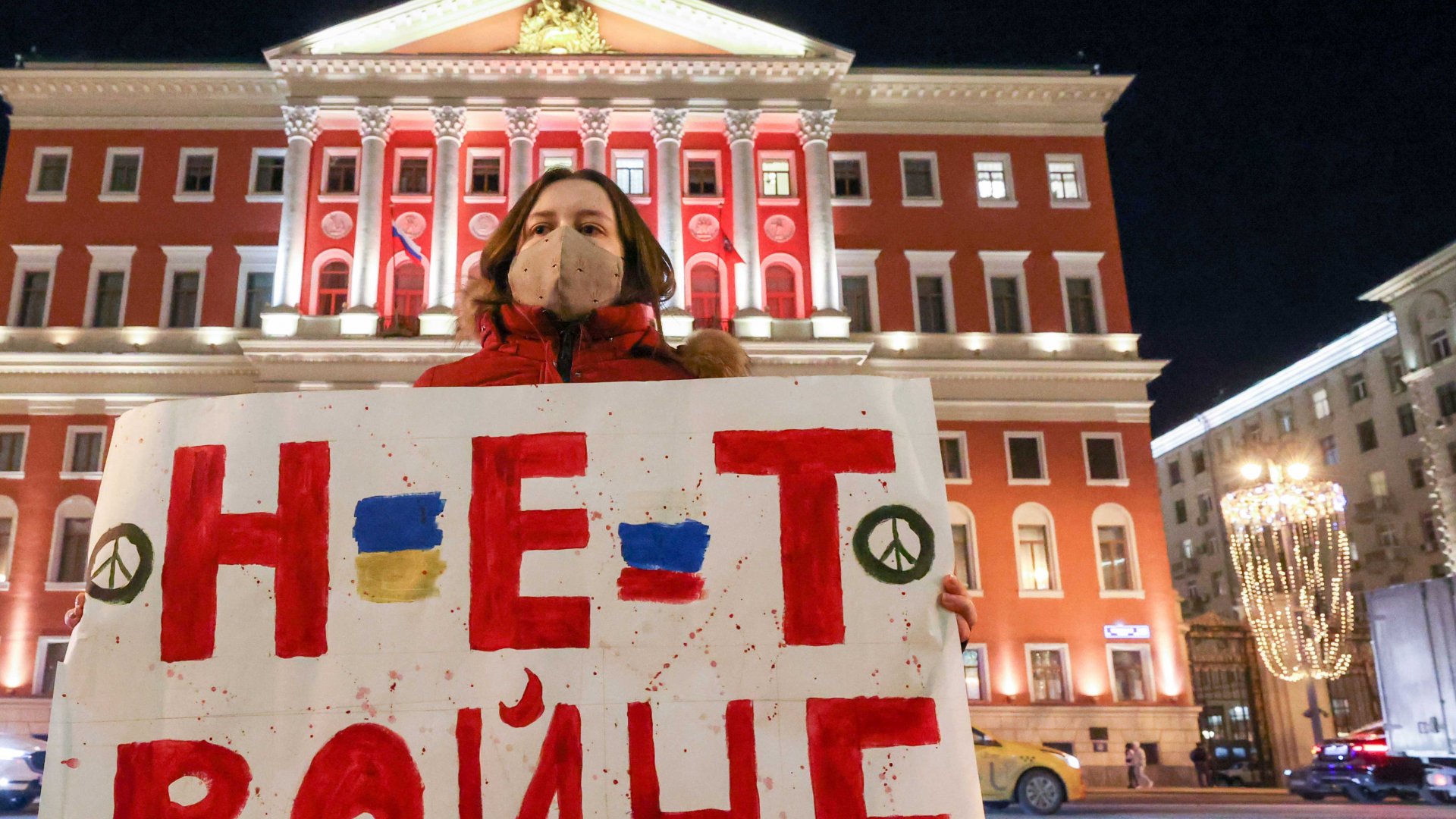“Everyone Can Do Something”
The Robert Bosch Stiftung has long supported the countries of Central and Eastern Europe in their social transformations and has a broad network in the region. Markus Lux, Senior Vice President for Democracy and Immigration Society within the “Global Issues” area of support, has been involved in numerous projects in Central and Eastern Europe. In this interview, he shares his take on events and explains why we mustn’t forget those in Russia who are opposing the war.
Mr. Lux, you spent many years working for the Robert Bosch Stiftung across Central and Eastern Europe. What do you hear from your friends, contacts, and project partners in the region about the war in Ukraine?
Lux: Through our projects in Central and Eastern Europe we are part of a cross-border network where people know and want to help each other. Across all countries, people are gravely concerned. Our friends and partner organizations in Ukraine are of course directly impacted by the war, but people in Ukraine are showing remarkable endurance. In Russia, on the other hand, many are still struggling to accept that their country has actually started a war. People there are certainly cautious, but we are seeing pockets of extreme bravery nonetheless, as people take a stand to say “nyet” to the war, with some taking to social media to express solidarity with Ukraine.
How is the Robert Bosch Stiftung responding to events in Ukraine?
We support a number of European partners with outstanding expertise and have a strong network in the region thanks to our alumni organizations, such as MitOst, who we can help on an ad hoc basis, for instance. But alongside emergency aid, in the medium term we want to analyze where help is already available and where it is still needed, as well as what needs we can meet with the resources we have available.
What can people in Germany do to help or signal their support?
Everyone can do something. Express your sympathy, for example, with the people in Ukraine but also those in Belarus and Russia who are standing in opposition to the war. It all starts with a like or a comment on social media to show: You are not alone! Or try talking to the people you know from Ukraine. Another way we can take action is by donating – and not just to major international aid organizations, but also to small local initiatives that know their way around the region. In the medium term, the challenge is how we in Germany and the EU are going to deal with Ukrainian refugees and how we afford them dignity in the process.
How can German civil society prepare for these challenges ahead?
We need to look at specific questions with real impact: How can we protect people on the ground? How should we organize arrivals and accommodation over the coming weeks and months? And not just in Germany, but across Europe. It’s important here that democratic nations in Central and Eastern Europe accept their role as an immigration society and treat people from different countries with the respect they deserve. Right now in Germany, for example, many people of Russian origin are in a difficult situation. As a liberal society, it’s our job to make sure we don’t discriminate against them on the basis of background.
But despite all these crises and problems, I do also see positive changes, like just how much people in all different countries are standing up for peace, democracy, and freedom. How civil society networks in Eastern Europe are holding up and even gaining traction in times of need. That’s truly impressive to see.

